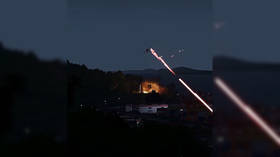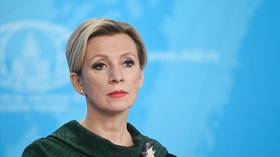Twitter announces new policy on Russia, Ukraine

Twitter has temporarily suspended the display of advertisements on its platform in Ukraine and Russia in a declared effort to make people’s safety a priority amid the military conflict between the two countries. Twitter noted that ads could distract users from the critical information.
“We’re temporarily pausing advertisements in Ukraine and Russia to ensure critical public safety information is elevated and ads don’t detract from it,” the company declared in a statement on Friday, revealing that it had also “paused some Tweet recommendations from people you don’t follow on Home Timeline to reduce the spread of abusive content.”
The social network also announced it was “proactively reviewing Tweets to detect platform manipulation (or other inauthentic behavior)” and was cracking down on “synthetic and manipulated media” that provide “false or misleading depiction” of the conflict in Ukraine.
Twitter – which revealed it would match employee donations to Ukrainian refugees – also announced that it was “actively monitoring vulnerable high-profile accounts, including journalists, activists, and government officials and agencies to mitigate any attempts at a targeted takeover or manipulation.”
The statement was posted in three languages: English, Russian and Ukrainian. The change in Twitter’s policy comes as the Russian military operation in Ukraine goes into its third day. Launched on Thursday by Russian President Vladimir Putin at the request of newly-recognized Donbass republics, the offensive has a stated goal of “demilitarizing” and “denazifying” Ukraine. Putin has insisted that the military action was necessary to protect people of the two breakaway republics from further Ukrainian “aggression” pointing to the 8 years of infighting between the separatists and Kiev forces after Donbass split from Kiev following the US-backed coup in 2014. The Kremlin argued that Kiev was unwilling to settle the conflict with Donetsk and Lugansk republics via the mechanisms provided under the 2014 and 2015 Minsk agreements, of which Russia was a party, and instead was eyeing a full-scale recapture of the areas by force. Kiev denied these plans.













